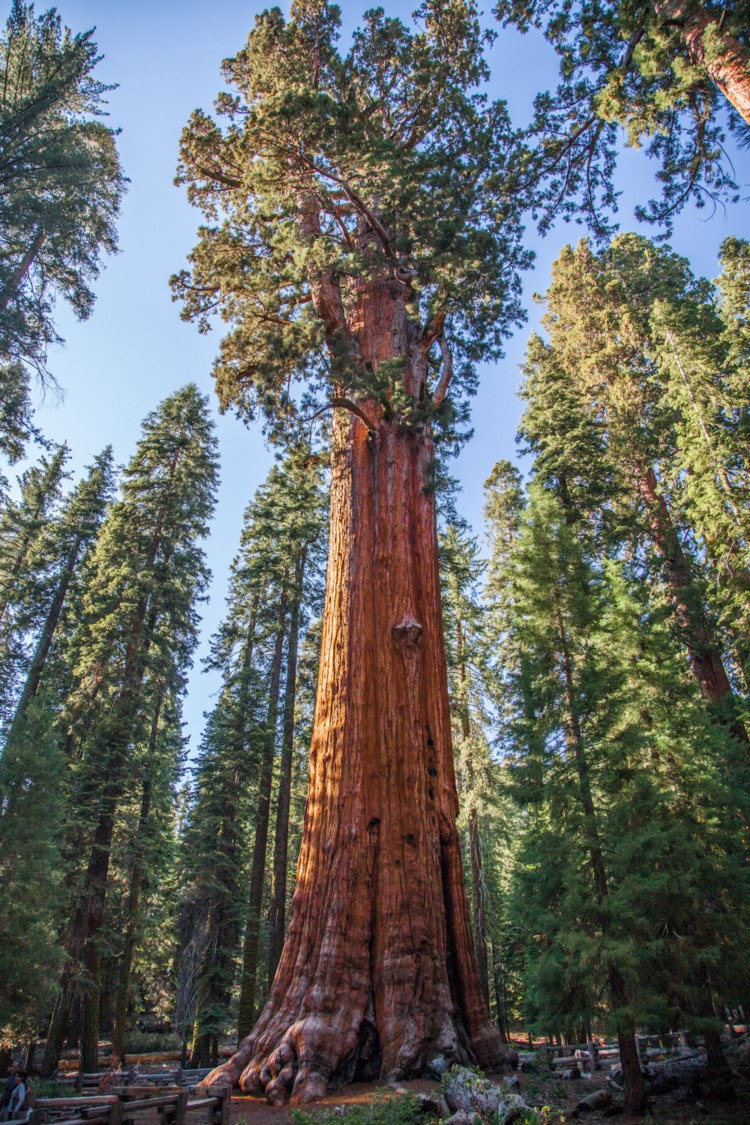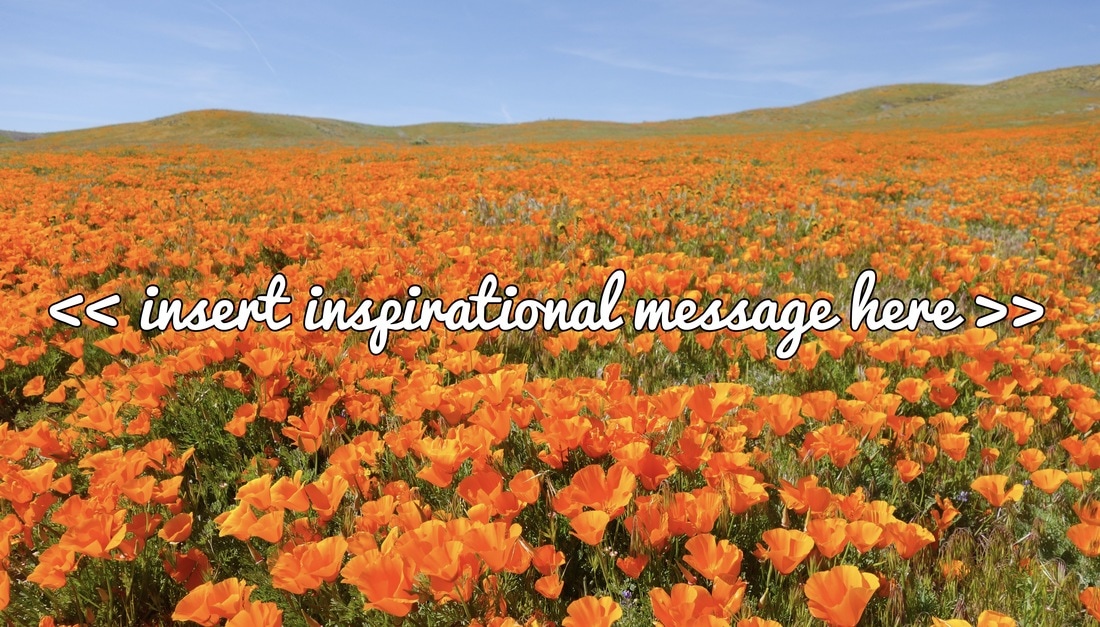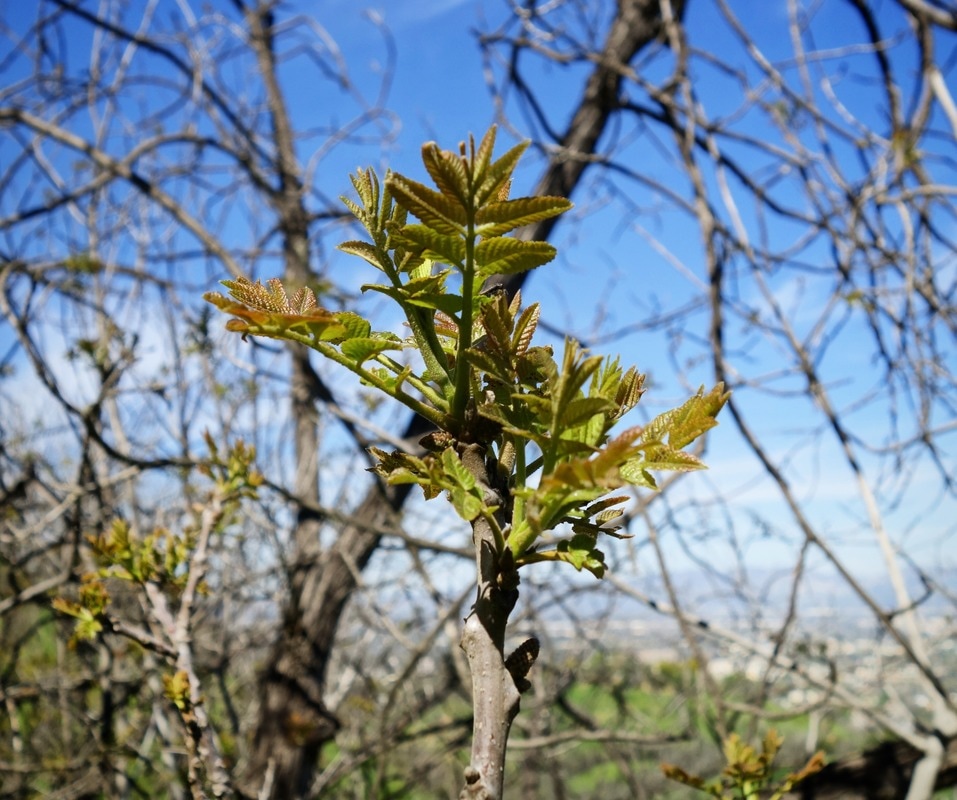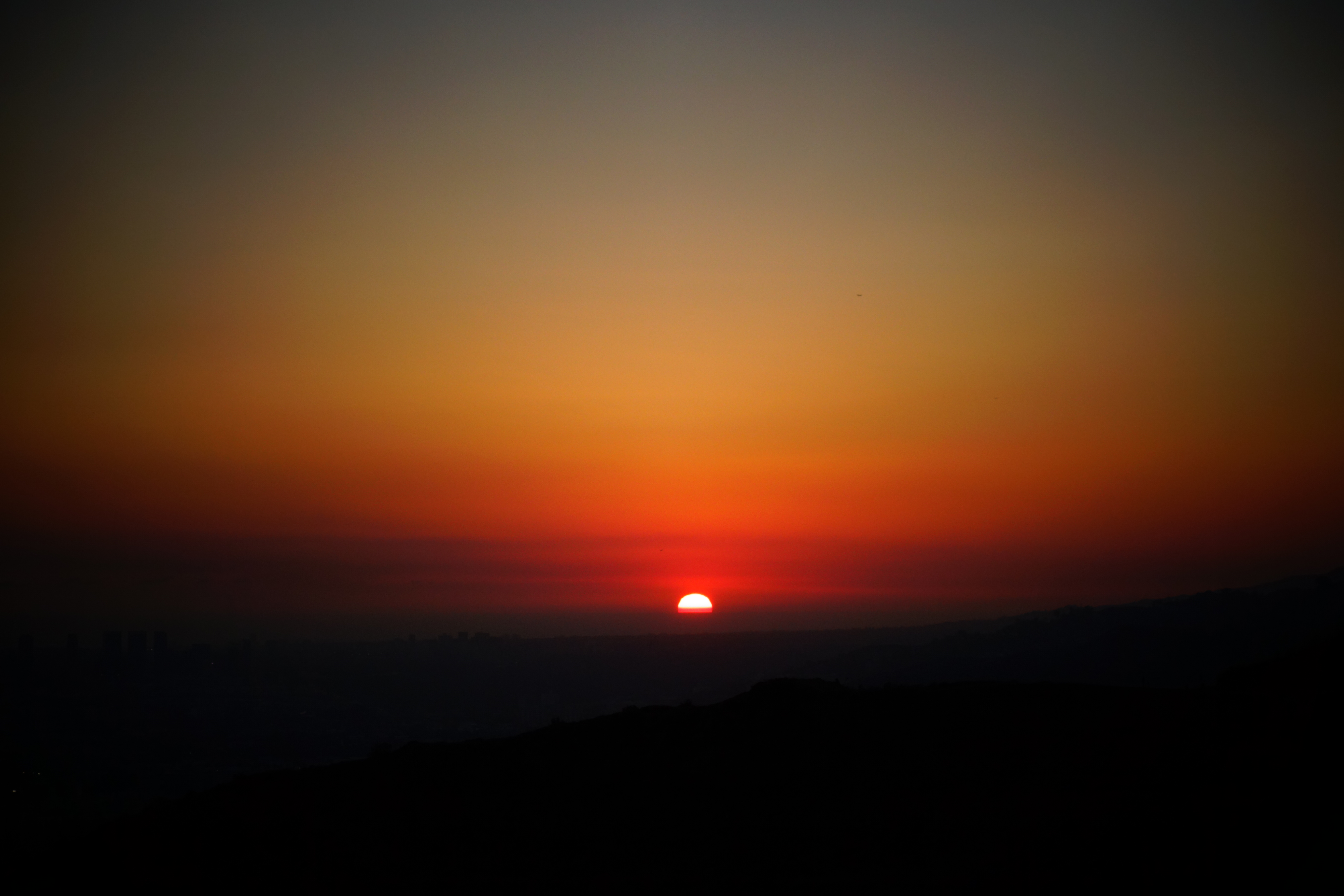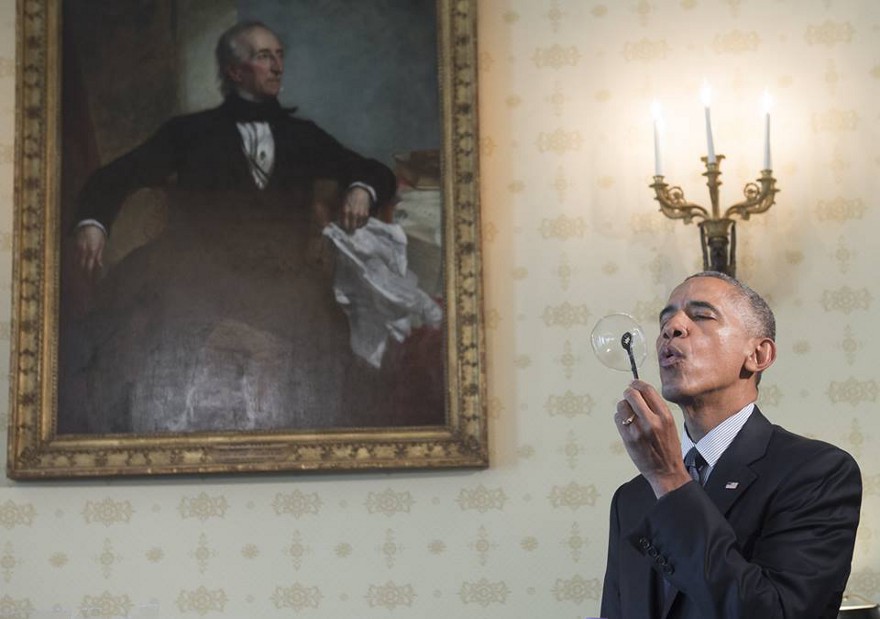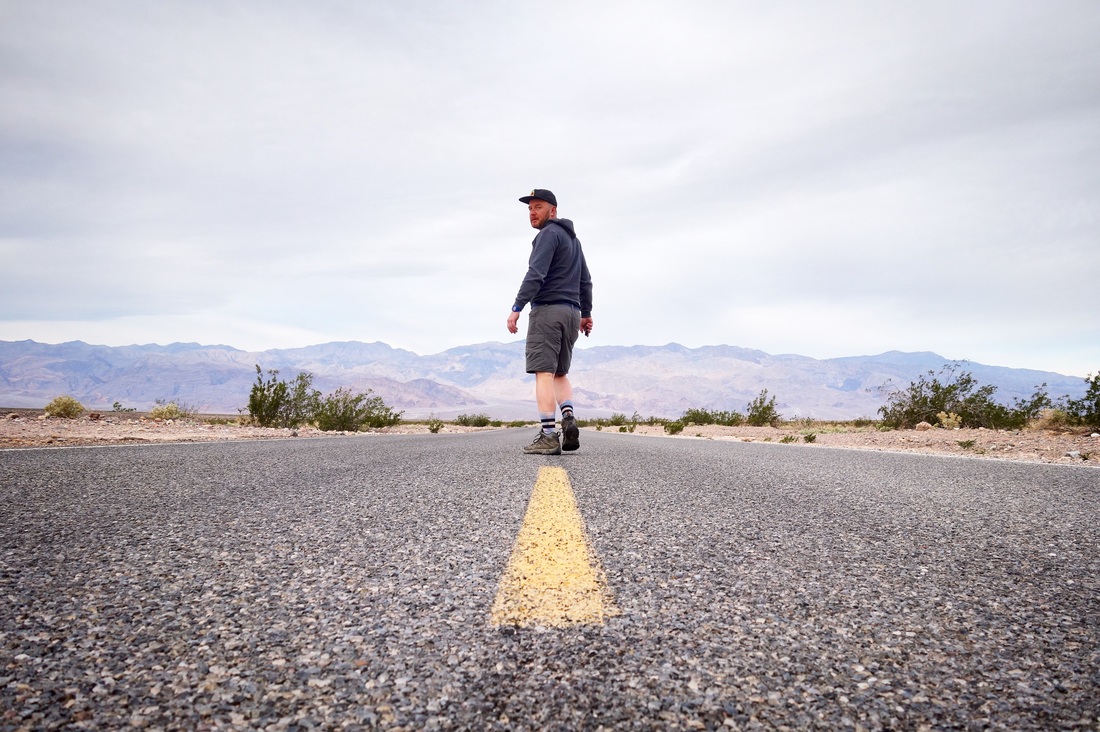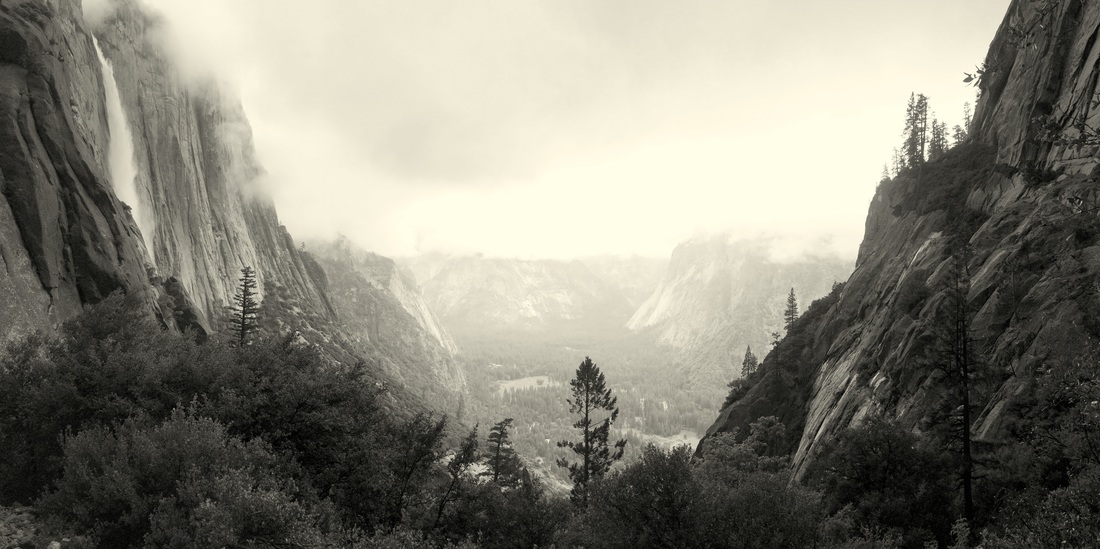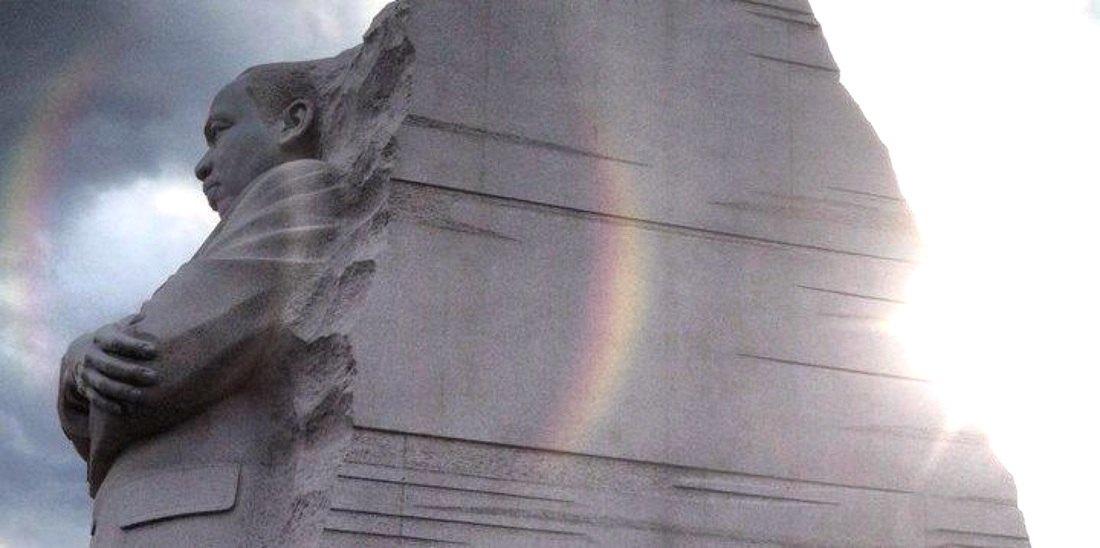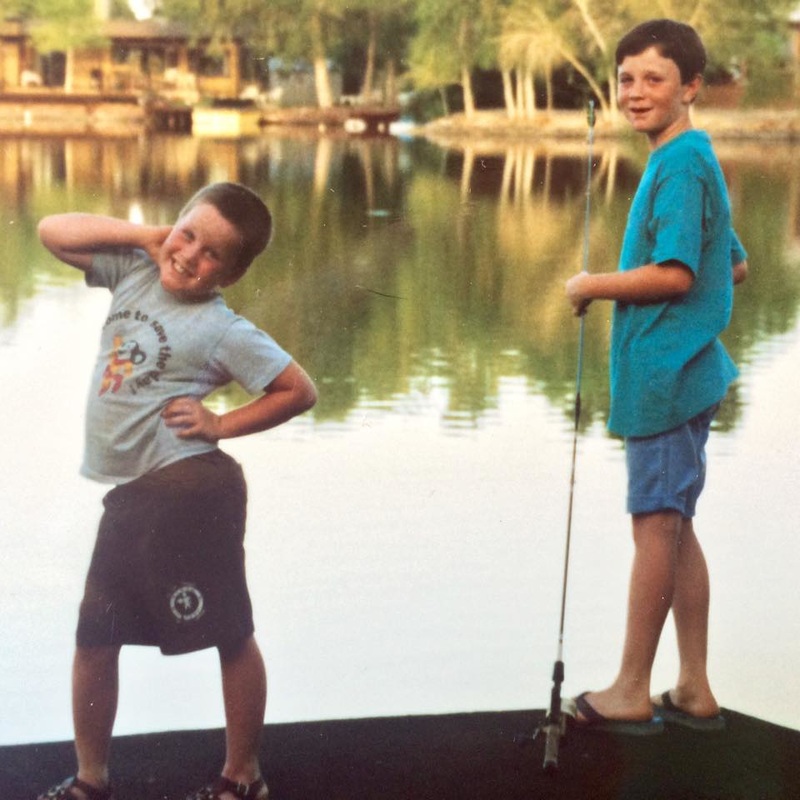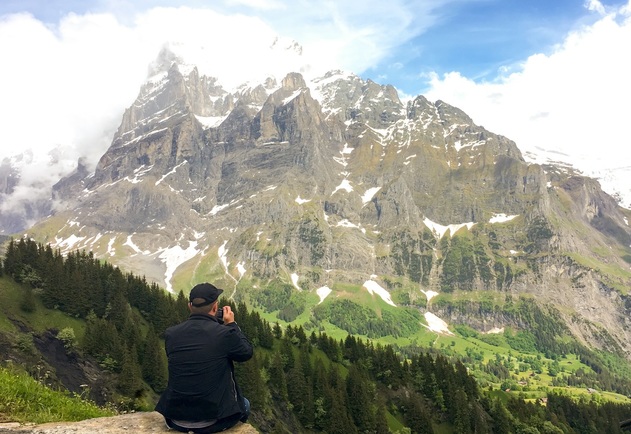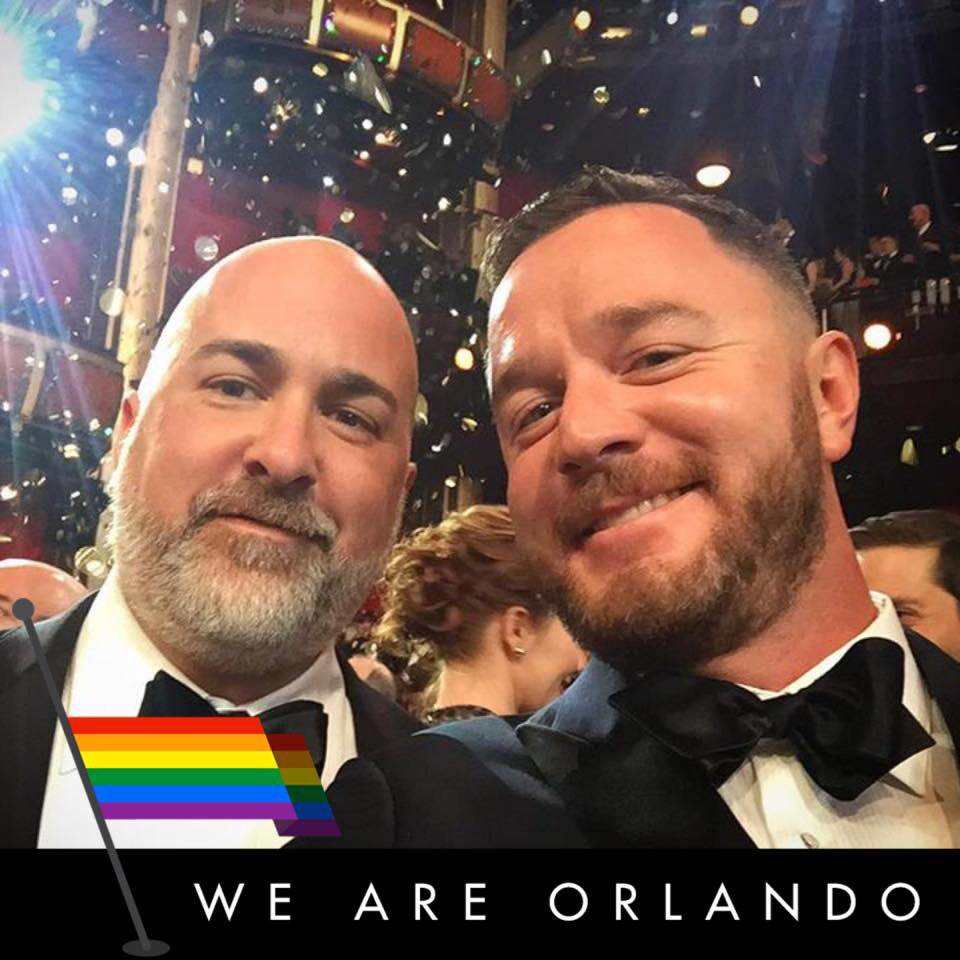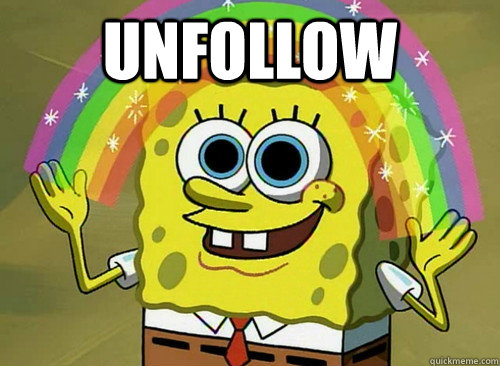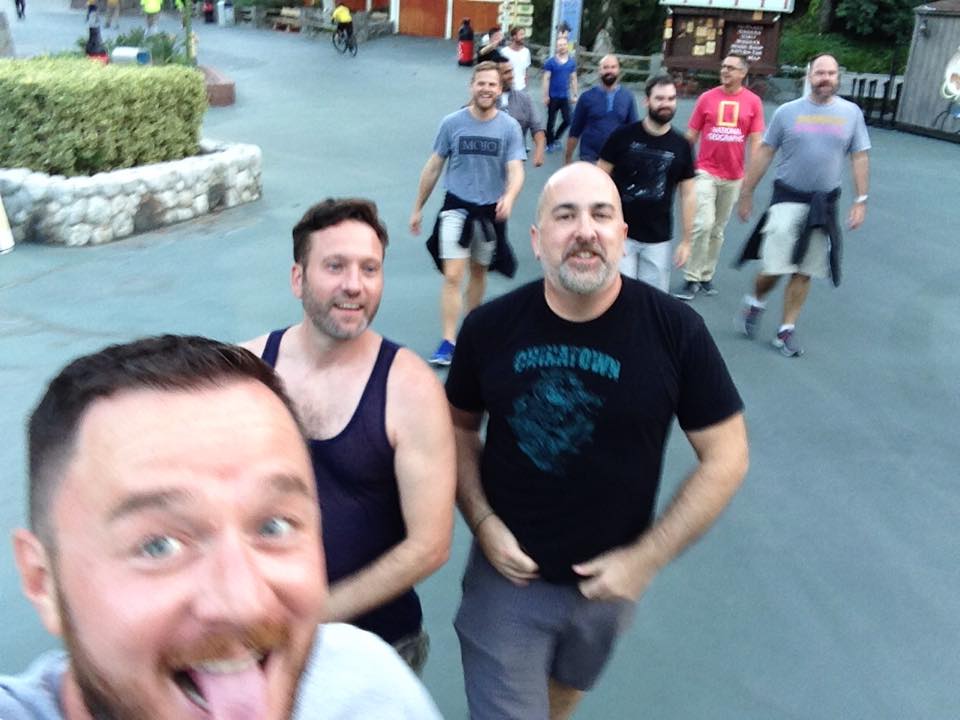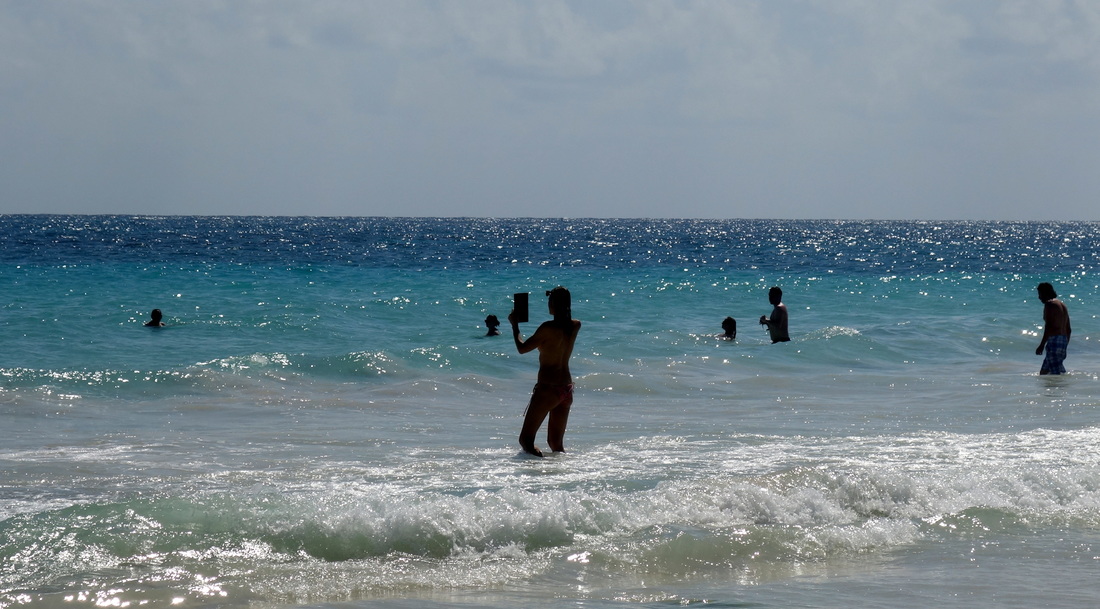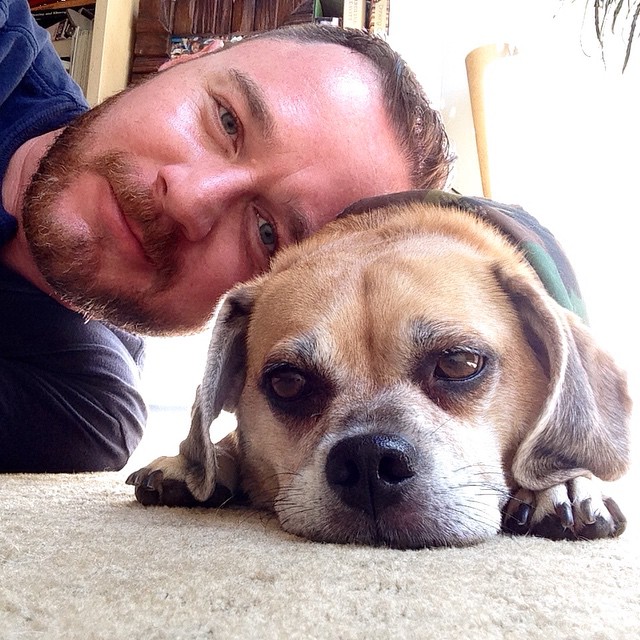They happen whether we avoid them or not, and they happen to be much more arduous because of that very avoidance.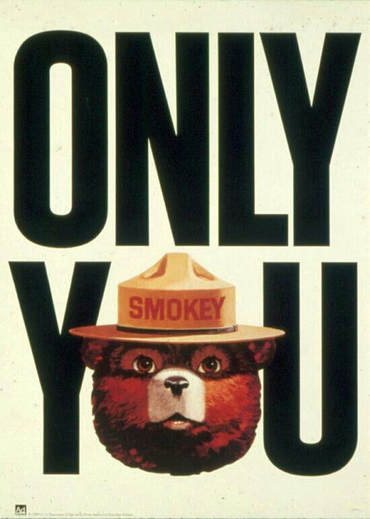 A wildfire is a lot like a tumultuous life event, metaphorically speaking. We do everything we can to prevent them, even coming up with catchy bumper sticker affirmations as a reminder. All of that avoidance eventually catches up with us though. Fueled by the false sense of safety and the series of particular conditions or revelations, our overgrown and arid personal landscape becomes increasingly vulnerable to explode into a raging furnace. But here’s the thing, both wildfires and personal trauma are natural occurrences. They both happen whether we avoid them or not, and they happen to be much more arduous because of that very avoidance. Fire and difficult situations aren’t all bad. Sure they often cause destruction in their wake, and that can be devastating, but they also clear the way for renewal. In the charred remains of a hillside, or maybe a relationship, space is cleared for growth, ash brings nutrients for renewal, seeds are released spurring rebirth. California has been ravaged by wildfires recently, sadly. Years of avoidance allowed our mountains to grow wild and over-development pushed communities into mountains that regularly burn. Couple that with drought and increasingly wild weather from climate change, and you end up littering the state with match sticks. Maybe you’ve gone through a relationship trauma recently, sadly. It could come from numerous causes, but far too often things like avoidance and neglect and over-dependence are the main culprits. Instead of communicating regularly to burn out the bramble, we allow silent issues to fester, until they explode. By then it may be too late, you have to walk through the fire and you will get burned. Since the fire is going to come either way, both the wildfire and the emotional fire, the trick is to figure out a way to manage instead of prevent it. To get ahead of the spark so it never flames to the point of inferno. To be prepared for both the difficulty and renewal it brings. We all would love to find calmness in our personal world. The more we learn to accept and work with the fire, the less fire we’ll encounter, the more peace we create, and really that’s the goal of it all, the goal of life itself. Give your relationships the attention they deserve.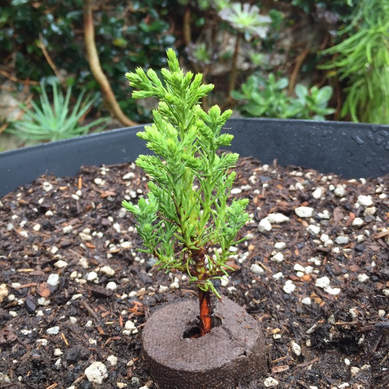 my sequoia sapping, life in its infancy. my sequoia sapping, life in its infancy. It seems like nearly everything requires care. Our teeth need brushing, our hair a periodic scrubbing, and our body an annual physical. A car needs regular maintenance, clothes laundered, every machine eventually needs repair, and you are really going to have to upgrade that phone at some point. A garden requires regular upkeep or it’ll either become overgrown or simply die off. Like all these things, like that garden, life and love require care too — always in need of a human touch, someone there to nourish our roots, clear our fallen debris, prune the withered limbs, make room for new life to bloom. Yet it seems we often overlook the things closest to us, things like our emotional health, things like relationships. The beginning of any kind of new relationship, friendship and beyond, is fresh, hopeful, and oh-so-exciting. It’s usually pretty easy too — the excitement this newness provides is the fuel that propels you forward into coupledom. It’s a sprout jumping up from the soil, ready to conquer the world. No one knows how fast, how tall, how stately it will become, and that’s what makes it such a beautiful rush. But as that plant matures, it inevitably begin to change: that first burst of energy spreads thin, growth slows, overburdened branches droop from the weight, periods of drought starve the sapling, periods of flood confound it, and in the face of blustery adversity limbs or entire trunks can snap, leaving nothing in its place but a stump, a memory. That’s because love isn’t just a feeling, it’s an action, and it’s alive. If we are to avoid the fate of that stump, if we are to survive and thrive instead, the plants of our proverbial garden need careful attention through deliberate action from the start. It requires constant diligence by every star-crossed lover who ever sowed a seed. Regularly tending to their love, nourishing it, trimming back the old growth, removing any pests that seek to invade, holding the best parts up in esteem with support, searching for the weaknesses that need a little boost. When we fail to tend to a relationship, it fails, then fades, back to the earth from whence it came. I tend to lots of things in my life: my house and yard, the earth through tree planting, to my fellow mankind through Sierra Club leadership, my body with regular yoga and hiking (my mind with regular yoga and hiking as well), to my whole being by chasing my journeyman dreams instead of drifting in a comfort zone. But in the midst of the shuffle I find it far too easy to neglect my relationships. I have forgetfully allowed negative emotions to fester for years without airing those grievances. I’ve passively watched the limbs of friendship wither, taking little action to save or prune them to start anew. At times I’ve made no regular effort to feed and nourish those connections. In the comfort of routine I’ve often gone silent, forgetting to show all the love I hold through the a simple supportive act. Indifference spurs inaction, which can fell the most passionate of partnerships. Attention spurs action, building an insurmountable foundation of love and respect. A 2,500 year old sequoia.In all types of relationships, from budding sprout to weathered evergreen, change is inevitable. The trick is to figure out how to grow with it. By putting focus not just on how you feel, but how we feel together, you grow with it. By making an effort where once there was ease, you grow with it. By giving the gift of your attention instead burying yourself in your phone night after night, you grow with it. In this cut throat world, not everything in this garden will survive. Sometimes the seed was just not meant to be planted. Sometimes the plant has a unalterable lifespan. That’s normal, and sometimes the best, yet most difficult decision is to let it go. But in the meantime, we owe it to our partner, to our relationship, to make every effort imaginable to raise our sapling up to be as sturdy as a sequoia. We owe it to each other to care for it, every day, until the day it and we are ready to move on. We owe it to love to at least try. We owe it, because we care. It's Never Over
3/4/2017
I'm 37 and always feel like I'm just getting started in life.
I’ve felt like I was just getting started for pretty much all of those 37 years, and it has its pluses and minuses. On one hand, it can easily lead to malaise--if you’re always just getting started, it’s easy to feel adrift. But on the other, I like the idea of new beginnings--when every day is an opportunity to start again, every day has hope. That's because it's not over. It’s not over for me. I’m still figuring it out, trying new things, pushing myself, often failing, but then picking myself up and learning from it. It’s not over for you either. You don’t have to have it all figured out. You just have to try new things, push yourself, and pick yourself up, so you can learn and grow into the future. Each day is the start of a new path of possibility. Whether we take that path and how far we travel down we travel is entirely up to us. It leads us forward, toward creating our legacy, toward ourselves. Look, I don’t always feel this way — I get bogged down in the day-to-day struggle of getting my act together too. After 37 laps around the sun, sometimes I run into a wall of exhaustion. I wrote this at one of those very moments. But I also know that when we stop to bemoan our lack of progress, we do so at the expense of progressing. So I wrote this because in that moment I needed a cheerleader to root me toward the finish line, even if that cheerleader was myself. I wrote this because I know once in a while you might need that cheerleader too. I know it’s not over, it's never over, because there’s always hope. I know that if I wake up every day and trudge forward that I’ll move forward. You know it too. That’s why you’re reading this. Build a beautiful relationship? It's not over. Land that dream job? It's not over. Cultivate happiness? It's not over. Lose those pesky 5 pounds? It's not over. Resolve a nagging conflict? It’s not over. Debt-free by 40? It’s not over. Abandon social media distraction? It's not over. Perfect your recipe for lemon squares? It’s not over. The battle for equality and progress? It’s not over. It’s not over because it each day is a new beginning. It’s not over because that beginning is your choice. It’s not over because that choice is one you get to make every day. Leave Your Legacy
12/2/2016
You control your legacy. You control your story. You control it every day with every decision. You control it by living in the moment. Cross-posted at: medium.com/the-mindful-journeyman/leave-your-legacy I see you all out there with your drive. You get up every morning and do big things. Or maybe you do small things, but they’re still the things that add up to a big life. You’re following your passions, making a living, making families, fostering relationships, fostering yourself, smiling, sometimes suffering, but always weathering the storm.
Or at least that’s how it all looks through the Facebook filter, and I know it usually doesn’t tell the full story. Underneath there is struggle. There are moments when you’re in so deep it feels easier to just swim down. I see that struggle when we get together in real life. Maybe we sit down and talk about it, maybe it’s over a random text exchange, or maybe it’s a moment of total silence, but I still see it. You probably see it too, because I’m not immune. I wonder about your drive, and your sorrow, because I also wonder about mine. Questioning life is a good thing. Where do you get your motivation? How do you deal with struggle? What story are you telling with your life? Some days I do big things too. I’m fostering friendships and relationships and myself, I feel confident that I’m making a difference, I spend all day writing, and I’m filled with passion and pride and lots of plans. Other days, not so much — it’s easier to procrastinate, to get stuck in a Facebook black hole, comment crater, to dwell on uncertainty and sadness, or distract myself with entertainment and drink, all instead of making tough choices or putting in the hard work. At the end of the day, or really at the end of it all, what we’re talking about here is your legacy. It is the sum of all the decisions we make day-in and day-out that altogether create our impact. And that impact exists in spite of and in cahoots with all the ups and downs and sidewayses that come your way. How do you find balance in the chaos? What inspires you despite it all? How do you ensure you’re story is meaningful? There’s so many ways to fail at life. It’s like the front lines of a war, riddled with booby-traps and sniper fire. Procrastination is how we lull ourselves to complacency in order to avoid tough decisions. Regret over the past is another way we, quite literally, keep ourselves moving backwards. A grudge is a vice we hold on to, that turns the table by holding on to us back. Worry is the worst of them all, fooling us into thinking we’re perfecting a future legacy, when we’re actually distracting ourselves from a productive present. I fall into all these emotional traps, but I also know deep down they’re useless. They are blinders that distort and distract from the beautiful panorama of life. It’s so much better to live in that beauty , to live in the present, to make peace with disagreement, to foster forgiveness, to let the past go. It feels good, and it frees you to go back to building your legacy. When was the last time you were on the front lines and avoided all the traps? How on earth did you do that (seriously)? What decisions can you make to do it all again, every day? I don’t need to be famous, I just want to leave an impact. To change some minds. To feed a few souls. To live on in the hearts of those I encounter, especially of those I love. It’s not too much to ask. I’m not trying to do the unimaginable. I don’t think so, at least. When my time is up, will I have done enough? Who will tell my story? What will that story even be? Look at where we are and where we started. Each from our own place of inspiration and anchor, pride and predicament, joy and jealousy. Each individual moment a piece of our life’s puzzle and an opportunity for inspiration. We foster a desire to use all that we’ve experienced and learned, and to pay that forward, right now, in the moment. That’s how we leave an impact beyond ourselves. We leave our legacy when we stop the endless wondering about what our story will be, and start writing the story instead. Every morning, think about it. What’s your impact? Every day, look around. What do you want them to remember about you? Every relationship, pay attention. Who will tell your story? Every moment, a choice. What kind of legacy are you leaving? With each decision, a new page. With each day, a new chapter. Go out and tell your story. How To Survive An Election - 10 Easy Steps!
10/21/2016
“The mountains are calling and I must go.” ~John Muir Escapism, by definition, is the act of running to a comfortable fantasy world to escape the complex real world. It's a distraction. Some might say it's unmindful. But maybe that's not always the case. Maybe sometimes it's the exact opposite.
Can we escape to reality instead of from reality? People get into an escapist mindset all the time: when you go on vacation you escape from your everyday responsibilities. At 5pm on Friday you get to escape your job for a fun weekend. Movies, TV, and video games are common escape routes. Some of these escapes are more mindful than others, of course. Your vacation or your weekend could easily be filled with mindful activities--nature, friendship, family, connection--an escape to reality. Your video game most likely isn't very mindful--an escape to fantasy--but it's also perfectly fair to take a break from thee stress of real life now and then. We all need an escape sometimes, be it the mindful kind or not. I'm about to go on an escape of my own, a pretty big one, leaving the comfortable confines of my home in Los Angeles to spend a month living in Yosemite National Park. Through one prism this looks like classic escapism, but I can present a series of defenses for this action:
I propose that escapism has more than one meaning: it always involves leaving one’s home for a change of scenery, but sometimes it’s not about bolting from the real world to fantasy, it’s about making a difficult decision to leave the real world in order to experience a different kind of real world... and then reaping the benefits. A change of scenery is so important for our psyche, or at least it is for mine. I can’t imagine standing still. I want to see new views, experience new ideas, meet new people, get out of my comfort zone, because all of that makes me a better person. We can all benefit from some level of diversity in our lives. Yosemite National Park, and spending time in nature in general, gifts us with a whole new spectacular level of diversity. In this modern age, we live in cies with paved streets and grocery stories and digital connectivity at every step. In Yosemite, in the woods, we live simply as men have lived for centuries, with trees, trails, fires, maybe a bear box for good measure, and most likely no phone service. The two worlds could not be more polar opposites, yet both are real. Spending some time living like our ancestors enables us to understand life outside of the digital distractions, teaches us to appreciate our modern conveniences, and reminds us how to just be present with one another. When you spend some time switching between these two worlds, you get more mindful. A challenge is also important for the soul--it definitely is for mine. A little over a year ago I challenged myself by quitting my job and going off on a three week solo camping trip around the west. Leaving that morning was one of the most heart wrenching moments of my life. I was anxious and emotional, and I got very lonely once I was out on my own for a few days. Some people are used to going off alone on trips for work, but I think for a lot of us this "being alone" thing isn't always the easiest pill to swallow. I got that change of scenery I wanted though, and I eventually got comfortable and confident with myself. I got more mindful, it just took some time. So I might be engaging in some escapism by going on this trip, but I’m not escaping some terrible real life situation for a happier pretend one. I’m very purposefully making a burdensome, anxiety-ridden decision to switch between two versions of the real world, all so that I can collect the bounty that doing so brings. It’s escapism to feel more real, not to dive into a happy fantasy zone. Escapism to improve my life, not to distance myself from it. Escapism to strengthen my resolve, not to lighten my load. It's an escape to reality---the reality of the earth as it is, unobstructed, natural, and free. So here's goes, escapism be damned. I'm ready to have a work schedule for the first time in a year, I think. I'm ready to camp for a month straight for the first time ever, mostly. I'm ready to hike and take way too many pictures, for sure. I'm ready to physically explore my favorite national park and spiritually explore life through my writing, definitely. I’ll write about nature and mindfulness (obviously), the history and meaning of the national parks (it’s the 100 year anniversary of the National Park Service afterall), the environmental movement and it’s importance in an election year (#dumptrump), and the intersection of the LGBT community and nature, which I believe can be a key element in creating confidence in our identities and ourselves. The topics of exploration are as endless as the miles of Sierran hiking trails. In short, I’m going to be quite busy. It’ll take some hard work, but no one ever said life would be easy, thank god. I hope you'll follow me on this new journey. Progress Goes in Ebbs and Flows
7/22/2016
As someone taking the time to read the blog, I'm making a few assumptions about you. #1, I assume you’re ravishingly attractive. No seriously, the inner beauty you craft through mindfulness almost always exudes an outer beauty of cool self-confidence. #2, getting to the real point of this piece though, I assume you're interested in improving yourself, being more present in the world around you, and making that world a better place. Basically, you believe in progress. Individual, social, political progress. But progress isn't an easy topic to define. Coming from their own individual starting point, everyone undoubtedly develops their own idea of what progress means. Those differences make the path of progress a challenging and uncertain one to follow. But in the end we will always move forward. In my own mindful world, progress fluctuates. One day I’ll do a hike, spend a few hours writing, maybe actually publish an article, check off a bunch of to-do list items, cook a healthy dinner, and get to bed at a reasonable hour. Then the next morning I’ll oversleep and waste the day on Facebook. My own progress ebbs and flows. I won’t pretend to know what's happening day-to-day in your world, but I’m just going to go ahead and make another assumption, that you experience days very similar to mine. Otherwise, why would you be reading up on ways to find more mindfulness in your life on this blog? Everybody’s individual progress ebbs and flows too. Interpersonal progress follows the same pattern as well. All relationships come and go, grow or wither over time. The more time we spend getting to know different people, the more we change, the more they change, and the more the relationship between the two changes. Sometimes it changes in a way that draws you closer. Sometimes, you drift apart. The progress of interpersonal connection also ebbs and flows. You’ll find the same order in the world of political progress. Empire’s come and go. Sometimes the Republicans are in charge, and sometimes it’s the Democrats. Laws are passed and laws are repealed. The politics of power and the issues of the day are constantly in flux I’ll use a recent example: a few short years ago marriage equality for the LGBTQ community was a divisive issue for most Americans, and a hot potato issue for most politicians. These days a decent majority of Americans support it, and for anyone in the liberal-to-moderate realm, it’s the expectation. You even have the current Republican presidential candidate name-dropping “LGBTQ” in his nomination acceptance speech. That's progress too, but at the same time his party’s platform calls for roll back of all LGBTQ protective laws, marriage equality included. You can bet that if the tide of power shifts in their direction the rights we now take for granted will quickly evaporate. The progress of politics ebbs and flows. Despite all this---the constant change, the victories and failures, from an individual to a national scale---we eventually move forward. “The arc of the moral universe is long, but it bends toward justice.” Dr. King was speaking about the politics of civil rights in the United States, which itself saw various ebbs and flows over time. From kings and queens of their continent, to slaves in a far off land; breaking the chains of slavery, to persecution by segregation; obtaining voting rights, to literacy tests and poll taxes that block those rights; the Civil Rights Act banning discrimination, even while racism continued (and continues). The progress of civil rights, like all politics, like our individual and interpersonal growth, ebbs and flows.
But in the end it flows forward. There is marked improvement of conditions, of equality, of fairness, of liberty over time. Maybe progress doesn't always move as fast as some of us would like, but it still moves. The arc of the moral universe bends toward justice, eventually. We're all somewhere on that arc of progress. I have a lot of work left to do on myself, but I’m slowly getting there. I hope you are all in the same boat---advancing, improving, or at least making an effort. Each relationship moves forward, sometimes into calm waters and sometimes more treacherous, but always evolving. And in politics, even when conditions seem hopelessly unjust, off in the distance there's a glimmer of hope... progress. Knowing and accepting that life won’t be perfect, that everything won’t go our way, that we will run into both fast lanes and road blocks---that knowledge is power. This is the way progress goes, sometimes it ebbs and sometimes it flows, but always it grows. Fear of Death & the Death of Fear
7/6/2016
The way I see it, you have two options for your existence: live your life, or live your life in fear.
There’s a valid evolutionary reason we feel fear and anxiety. In our caveman days we developed these emotions as a form of protection. The fear of death, injury, or pain triggered our defenses, thus lowering the chance of death, injury, or pain. But it’s easy for us to take that healthy reaction of caution to an extreme, especially in this age of digital information over-saturation, especially given the news media’s tendency to focus on calamity as a ratings booster, and most especially when we’re hit with a personal tragedy. 12 years ago today my younger brother, plagued with blood clots, laid down to catch his breath and never got back up again. 5 years before that my father, plagued with high cholesterol, went out for a run one afternoon and never ran home. In my years before all that, I was always a bit of a worry-wort, lying awake in my central California home fretting over the possibility of the "big one" casting us off into the Pacific, or of an inescapable house fire, or of an alien invasion (seriously). All of this, especially the untimely death of two of my closest family members, could have lead me to a very fearful life, becoming increasingly risk averse so as to avoid all of the many real and imaginary dangers of the world. While I do carry a decent amount of this worry with me to this day---and believe a little fear-induced caution can lead to wiser choices---I make a concerted effort to let go. Because really, what is the point of living if you spend your whole life holed up in a mental bunker of fear? There are truly dangerous people and things out there. My community, LGBTQ folks, are often the target of violence. I go hiking a lot by myself and so every time my mother learns of a bear attack she sends me an email of concern. Even with that, my risk of danger is low compared to the many places in the world held hostage by terrorists or the underprivileged communities held hostage to an overreactive police force and straight up bigotry. But in spite of all that, when the moment comes that I lie down and never get back up, I’d like to at least know I lived life to the fullest while I was standing. I want to know that I wrote down every word, that I helped every friend, that I loved, that I cried, that I followed my dreams, that I lived while I was alive. On this anniversary of my little brother's death, the lesson is to live with passion, joy, and love, just as he did in his time on earth. On the occasion of a seemingly neverending parade of deaths around the world, the lesson is to live mindfully in the present, because who knows what might happen tomorrow. The lesson is that life is too short to waste it constantly worried about death. The lesson of death... is life. According to Google, "journeyman" isn't an entirely popular word these days. It probably conjures up ideas of a union electrician apprentice---that is, if it conjures up anything for you at all. The word more or less means “someone who is educated on a topic, but isn't quite an expert. An amateur.” You can see how this might have negative connotations.
And yet, here I am using that word in various blog posts and on my Instagram/Facebook/Twitter. I use the term liberally to describe myself, and I also use it to describe everybody else as part of a larger world view. Not long ago a friend questioned me on this practice. Was I cutting myself short? Was I cutting the world short? But I don't use the word "journeyman" in any traditional sense, I use it as a mindfulness shortcut. It's a metaphor for the journey of life, the journey we are all on. The more on-the-nose way I use journeyman is to denote travel. I dubbed my month-long trip across multiple western national parks my “Journeyman Trek”. I use #Journeyman👣 on social media to denote whenever I go camping, climb a mountain, or use my passport to cross a border. That’s a play on the word, and I like being mildly clever that way. But the primary way I use the journeyman is much more of a philosophy. It's a figurative journey, a mental and spiritual journey, not a literal journey. It boils down to this: life isn’t static. No one, not a single individual human being, stays in one place their whole lives. Everyone is constantly experiencing, learning, and growing. For those of us who keep an open mind, this isn't some abstract concept. We expect to take in new ideas and experiences and allow them to mold our understanding of the diverse world around us. Even those who appear rigid in their beliefs will change, simply due to the passage of time, in small but still meaningful ways. Time leads to experience leads to knowledge. Even those who seem stuck, in a job, relationship, or any other circumstance, are only as stuck as they believe themselves to be. In all but the extreme circumstances, the experience of being stuck teaches you how to become unstuck, and then it's up to you to use that lesson. When you look back on your life, it's almost impossible not to see some way in which you've grown, and that's your evidence that this "personal journey" people talk about isn't theoretical, it's tangible. In the progressively hopeful way I choose to see the world, that is just a given. So if we’re always changing and gaining knowledge, is there really such a thing as an expert? Expertise is only the collection of knowledge you've gathered in a particular subject up until now. There are no know-it-alls, because as soon as they've learned "all" there is to learn on a subject, a new discovery will turn that knowledge on its head. “Expert” doctors once used leeches to cure illness. “Expert” astronomers once believed the entire universe rotated around the earth. Knowledge evolved and those “experts” reverted to journeymen. And that isn't to discount the noble efforts they made in their profession, it's just to readily admit that knowledge is never finite. Today’s “experts” will meet the same fate, because in a few years the next big idea will inevitably turn that knowledge on its head. Each and everyone of us will meet the same fate as well. We think we know all there is to know about a friend, for example, until we learn something new or see a different side that turns our perception of them on its head. Accepting that tomorrow is both an unknown and the product of every experience you've had up through today, that's how you start to live in the present. That is the intersection of mindfulness and the journeyman. Being a journeyman isn’t something negative, it’s our dynamic reality. Or at least it's the dynamic reality I try to accept in my quest for enlightenment through mindfulness. The more we act as the students, the amateurs, the journeymen of life, the more mindful we become. It's something I've wanted to write about in this blog for a while now, but never quite knew how to bring it up. It's also something I've always known, for as far back as I can remember, but something that took me a long time to accept. Usually the easiest way to do this is like pulling off a bandaid, so here goes..
I'm gay. I don't imagine anyone who reads this blog is particularly disrupted by that fact. You're either my friend so you already know, or you're people who seek out mindfulness, and those kind of people are loving, open-minded, and caring. So I wasn’t worried about coming out per se, and I've made casual reference to “my man” and used photos of us together on numerous occasions. But still, I've never been overt. I suppose I didn't want to be “that gay mindfulness guy.” I wanted my ideas to speak for themselves, to be universal. The recent and absurdly tragic events in Orlando though, they made my desire to come out on these pages more urgent. They also got me thinking a lot. I've been trying to wrap my head around what occurred, and then the response from people of all persuasions over the past few days: reactions of anger for good reason, fear of what still might occur, love for the community of support we've created, honoring the past in the form of brave coming out stories, and hope for the future as we trudge forward with marching orders as political advocates in a new arena. I've also seen some truly terrible reactions, those of vitriol and blame that do nothing to solve the myriad problems we all face as a society or to better the plight of LGBT people around the world. I wanted to figure out how and where mindfulness fits into this. As usual, as we all do, we go back to our own bubble of experience to try and make sense of it. Leading a more present life in the world is a long and arduous journey of fear and accomplishment. Coming out of the closet was, and still is for most young people, a long and arduous journey of fear and accomplishment as well. And the more I think about it, the more I realize growing up gay is perhaps one of the biggest drivers of my own attraction to mindfulness. Simply living as an out gay man is an albatross of a journey; constantly looking over your shoulder wondering if someone is judging you, or worse, out to harm you. A life in that sort of existence is far from mindful. How can I live in the moment, love who I want openly, and just be my honest self when a "wrong" move in a wrong situation can lead to derision or even violence? Perhaps I actively search for ways to live free and mindful because I’ve been stripped of the ability to do that in my everyday life, for my whole life, simply because of who I am and the way some in society view me. Certainly not every gay person is an amateur-journeyman-mindfulness-guru like me. But take a place like a gay bar or club; it's a place of safety for my community, a respite from the worry of constant judgement you feel almost everywhere else. It's a place where we can truly, finally, live in the moment. In that sense, perhaps we gays are creatures of the mindfulness, whether we realize it or not. On the same token, many if not most gay men grow up with a heightened sympathy for the other little guys in life---the maligned and the bullied---because we've been there too. I knew I was different from early on, and the other kids in school seemed to know too. So I was picked on, especially in PE class. I endured physical, mental, and verbal abuse, sometimes subtle and sometimes overt, but always painful. Later in high school I became much more confident in myself, or at least able to play confident, and the abuse waned. Maybe I was just lucky, because I continued to watch other outsider kids in my school get bullied. High school can be brutal that way. But because of all of that, I grew up with an extra sensitivity to the plight of others, and it led me to a desire to help make things better. By helping others I thought I could help myself. That led me to nonprofit work in my career, to make the world a slightly better place. It led me to this blog, to make my own life, and maybe yours by proxy, a slightly better place too. I've always thought of mindfulness as a way of helping out the little guy, even if that little guy is me. It's how we escape the pains of the world and learn to be proud of ourselves, in that moment. The LGBT community isn’t some monolith, not everyone is like me nor would I want them to be. But I think we all carry with us a chip on our shoulder from each of our individually difficult experiences of growing up in a society that thinks we shouldn’t exist. Or if we do exist we should only exist in private. Or that we don’t truly exist at all because we can just pray it away. Or we might exist right now, but we shouldn’t anymore, so they’re going to show up at a nightclub and mow us down with automatic weapons of war (that have no business being in the hands of civilians). I know for a fact that mindfulness has helped me wade through the sometimes muddy and sometimes beautifully sparkling waters of being a gay man in this day and age. Mindfulness has definitely helped me deal with my own myriad emotions stemming from the massacre in Orlando. My history and experience, all of it, has led me to here, a place of knowing about my imperfection, but also a place of strength because of it. I know for a fact that the world and everyone in it needs more mindfulness. The society that told me I shouldn’t exist said the same to the shooter in Orlando, who has now been found to have been on gay social media apps himself. Instead of taking that difficult upbringing of hate and turning into love, as so so many of my gay brothers and sisters have done, he turned to hate and violence. I know for a fact that my community, my friends, the loving and open-minded LGBT community, could use a little mindfulness right now too. A moment to look back at where we’ve been, look at the horror that has hit us now, and take all those years of both contempt and compassion, suffering and celebration, pain and pride, and mix up that uniquely amazing recipe to create the next step in our movement. It's a movement that makes the world a better place by telling our stories, with political action around LGBT rights, in working to reverse the tide of homophobia spawned by religious extremists from too many religions, and now using our collective might to combat our nations' longstanding pillars of shame: guns and violence. With all that we've been through and all that we've already done, I'm more hopeful now than ever about what we'll accomplish in the future. I couldn't be more proud. Unfollow: The Antisocial Network
6/9/2016
"Unfollow" is all the rage on Facebook at the moment. In the 2016 election season, it's a salve we use to treat the fever pitch of political posts on social media. I've noticed a big uptick in it over the last few months, but this week it's practically #trending.
It seems like an simple cure-all, right? Less disagreement = more mindfulness. But then I dug a little deeper, and as with most everything, once you really stop and think about it there's a lot more to consider. On one hand, differences of opinion can quickly make us angry and argumentative, and 9-times-out-of-10, anger isn't mindful. Truth be told, I’ve unfollowed a few people on Facebook myself. It's not that I dislike these friends, it's just that my reaction to their posts often became a frustrating distraction. I felt like I needed to unfollow to retain some level of sanity. I know I'm not alone in this. On the other hand, there's the problem of self-segregation. That is, avoiding all differences of opinion and surrounding yourself with only your most agreeable friends. When you do this, it's easy to get trapped inside your own dogma. If you never hear a different opinion and no one ever challenges your ideas, there's little room for growth. So what's the answer? Is unfollowing on Facebook a good or bad thing? Well, like a lot things in life it's not black or white, but somewhere in the gray. Overall, it's about balance. If you have a friend who says racist things and has a hateful view of the world, it's OK to distance yourself. You do this all the time in all sorts of relationships—you don't choose to date someone when your personalities are mismatched, and you're certainly not required to be friends with someone who holds fundamentally different values than you. But there can, and will, be some differences of opinion among friends, and that's OK. Everyone comes from a different place in life, and maybe it's when we expose our differences that we start to learn from one another. Also, remember that you always have the option to just not comment on a post you don't ike. You could even take your discussion to a private message or (gasp!) a face-to-face conversation, both places where we tend to be a little kinder to one another. Politics has the potential to bring out both the best and the worst in people. We all get passionate sometimes, and even if we disagree the reason we're passionate is that we fundamentally care about our country, our world, and at the most universal level, each other. So strike a balance—do what you need to do to retain your sanity this political season, even if that means editing your newsfeed experience a bit. But try allowing a few challenging opinions into your bubble. Get OK with a little debate and respectful disagreement. It could strengthen your opinion or make you rethink it, but either way you come out a better person. I get By With a Little Help
3/25/2016
It's OK to let others help you. And it's way better than the alternative.
Your own knowledge is limited. By dealing with every issue alone you'll only ever be able see the things that exist within your limited personal prism. By yourself you ride the merry-go-round of your own experience, circling around the same options, the same objectives, the same obsessions. But no matter where you're at in life, you're never alone. A million people have already gone through the same thing, or at least something somewhat similar. Use their lesson, learn from their experience, accept their help, take their advice. It may not be exactly what you need, but it can be a start. It can help you think differently, enough to send you down a new unexpected path, a path toward a better you. Attempted Sanity in the Digital Age
2/12/2016
The heart of this blog is about navigating the complicated waters of our modern times. Yeah, mindfulness is in the title, and sure, I write a lot about nature and hiking and travel, but those things are just methods -- important methods -- I think we all need in order to thrive in this day and age.
The key question I like to ask then is: how do we do that? How do we thrive when there so much digital distraction out there trying to hold us back? The ability to succeed in life, to me, is centered around two distinct yet interconnected sociological arenas. One is our personal world, the life that only we know about because it takes place in our own mind. The other is the social world, the life we show everyone around us. Both feed into one another. Both are fundamental. Our society, social structure, and the way we process and understand it, was developed over centuries. We figured out all sorts of ways to deal with one another. Time, experience, and technology then alter the paradigm and advance us forward. That progress. So it's impossible not to imagine the digital age having some effect on us. I was born around the time some experts deem the start of the millennial generation, but just barely. That means I do remember life before technology, but I also saw the transition start early on. The first time I remember noticing a computer in my daily life was around the 2nd grade, and it grew from there. It started with a few computers in the school office, then a computer lab, then a computer in every classroom, then a computer in every home. Later it became a computer for every person, then a computer and a phone, then a computer and a smartphone and a tablet and a Google and an iTunes and a Netflix and everything you could possibly imagine at your fingertips. These were all fun new gadgets that set out to make life easier, and they did. But in a broader sense they were quickly changing us on a much deeper level. They rapidly progressed a shift in our collective societal mindset, where all the ways in which we communicated went from a naturally sluggish human pace to a modern frenetic digital pace. Let’s take a brief trip through the past then... At one point in time we would make a plan to have dinner with a friend, and there might not be any other moment of communication between the plan and the dinner. There were no direct messages in the interim. No keeping up through Facebook posts. No texts at the last minute to let your friend know you're running late, even though that tardiness was of your own creation. You just met there for dinner, and then you caught up. It was slow and cumbersome, but it was real. I pretty sure this is the way people used to make plans because I’ve seen it in the movies. At one point in time we were slowly introduced to a new friend over time. We met at a party, got together over coffee, talked on the phone from time to time, and maybe got together with mutual friends. It took time and you had to put in effort. There was no method, beyond a private investigator, to dig into someone's past other than to simply ask them. There was no Facebook or Twitter history to explore. I believe I vaguely recall a life like this, sometime before Friendster and the subsequent onslaught and exposure of our personal world onto public mediums. At one point jealousy totally existed, sneaking into our psyche, causing us to covet the experiences of others. We would regret the decision to break up with that one guy or quit that one class. Worry was ubiquitous as we went about our day, and especially after the evening news of an episode of “Unsolved Mysteries”. All these emotions existed, but they took time to evolve. We weren't unavoidably reminded of the things we should fear and things we were missing out on via social media. I remember feeling all these emotions from time to time, but not as much as I do now. At one point gossip and cruelty were a part of our social world. People have always talked behind other's backs and there were always mean girls and mean guys. But you had to be mean face to face. You couldn't sulk and hide behind a digital avatar as you spit venom while claiming victimhood. I know assholes existed in the past because I did everything I could to avoid them. They’re not as easy to avoid nowadays. Our modern digital age has sped up the typical human socialization process, making it much easier to jump into these age old emotions. It facilitates and encourages laziness, impatience, jealousy, and cruelty by placing a rapid succession of updates in an easily accessible newsfeed. It leaves the normal pattern of social graces by the wayside. It discourages living in the present because this ability we now have to keep in touch so easily, is so easily addictive. And before you troll me with a “get off my lawn!” comment, I’m not saying the digital age is a bad thing. Information and communication is at our fingertips, and those are two key elements to thriving in life. What I’m saying is that the changes the digital age has so quickly foisted upon us demands our careful attention. The more we breeze through life without consideration, the easier it is to fall into the traps of jealousy and insensitivity towards our fellow man. We can live in the digital age and still take with us a reminder of the way things were. And really, all that is is being mindful. That’s how we maintain our sanity in the digital age. That's what this blog is about. On Mindfulness & Dogfulness
10/29/2015
This article is cross-posted with Elephant Journal: www.elephantjournal.com/2016/02/on-mindfulness-dogfulness Finding mindfulness isn't like flipping a switch.
Most of us can’t simply will ourselves into a state of zen like a Tibetan monk—the modern age and our overactive minds simply won’t allow it. So I look to the outside world for help. Be it through nature, exercise, apps, travel, everyday choices, or habits, we can use all sorts of methods to nudge ourselves to a more present state. One significant piece of my own personal outside world is my dog, Rocco. To put it bluntly, I love him to death. He always makes me smile and helps me forget whatever worry has been overwhelming my mind on a given day. I was thinking about him, and the larger infatuation many of us have with our pets, and suddenly it dawned on me—my dog is another one of the ways I nudge myself, often subconsciously, to get out of my head and live in the present. My dog teaches me mindfulness. The connection we have to our pets is multi-layered. No doubt, they provide us with companionship, unconditional love, snuggles and a great way to connect to other similarly passionate pet people. But there’s a deeper attachment that goes beyond the obvious. I propose a new theory—that we’re fanatically attached to our pets because they constantly teach us an important lesson about ourselves. Our pets take us out of our complicated adult lives for a moment, and back to a more mindful time—a time of youthful exuberance, a time before we were corrupted by the modern distracted world. They remind us of how we were then, and as such, remind us to try and a be little more like that again—right now. My dog Rocco is possibly the most zen being I know. He doesn’t worry about the future, except perhaps starting around four o’clock in the afternoon, when he knows dinner is imminent. He doesn’t stress over the decisions he makes, for instance—choosing which sunbeam to sleep in. He doesn’t regret his mistakes, even after tearing apart one of his favorite toys. He’s always enthusiastic when I take him on his morning walk, even if he had to wait while I procrastinated on Facebook. He jumps for joy at every treat, even if he’d always rather have bacon. He accepts all the snuggles and love I give, not worried about what other thing he might be missing out on. He’s also a big part of my favorite trick to get more mindful—nature. I hike a few times a week. The trails provide me with a level of exercise that keeps me physically fit and a level of peace and beauty that keeps me mentally fit. I often take Rocco on these hikes, and rather than take away from the moment of zen the wild gives me, he adds a whole new layer of zen that only enhances the experience. The exuberance he displays when I untether his leash adds to the exuberance I feel when I untether from the stress of city life. His curiosity to explore a new landscape—the trees, shrubs, vistas, wildlife and of course smells—brings me to a more mindfully aware state that bleeds into the rest of my day, on the trail and off. His consistent desire to stay close to me as we hike brings me an understanding of uncorrupted loyalty that I can carry with me into the human relationships of my everyday life. As a hiking partner, not only is he good at keeping up with my pace, he’s good at setting the pace for a mindful existence. I could go on and on, but you get the point. Rocco is my little yogi zen master. He doesn’t tell me how to live my life, but instead, he provides an example of a simpler way to live. Obviously, not all dogs are the same, and maybe I’m just lucky to have such an interested and present pooch. But I do think most dogs, most cats (I grew up with many) and most pets in general, have all these qualities to some degree. And it’s for those reasons we’re so drawn to them. When I’m feeling down, angry, stressed or worried about the future, I can look at Rocco and see a better way—a more simple, honest, mindful way. Maybe this is one of the reasons I love him so much. We’re all complicated humans, so it’s unrealistic to expect to live our lives with the same sincerity as our pets. It’s the cross of self-awareness we have to bear as a species. But that doesn’t mean we can’t learn from our furry companions—that we can’t take a moment to be with them in the moment, or that we can’t take the smile they give us and carry it with us as we go about our convoluted day. In that way, our pets are giving us the gift of mindfulness all the time. It’s up to us if we choose to accept it. |
Access Octomono Masonry Settings
blog searchauthorMy name is Jason Wise. Life's all about the journey, man. Find me on Instagram and Facebook. archives
May 2020
categories
All
subscribe |
